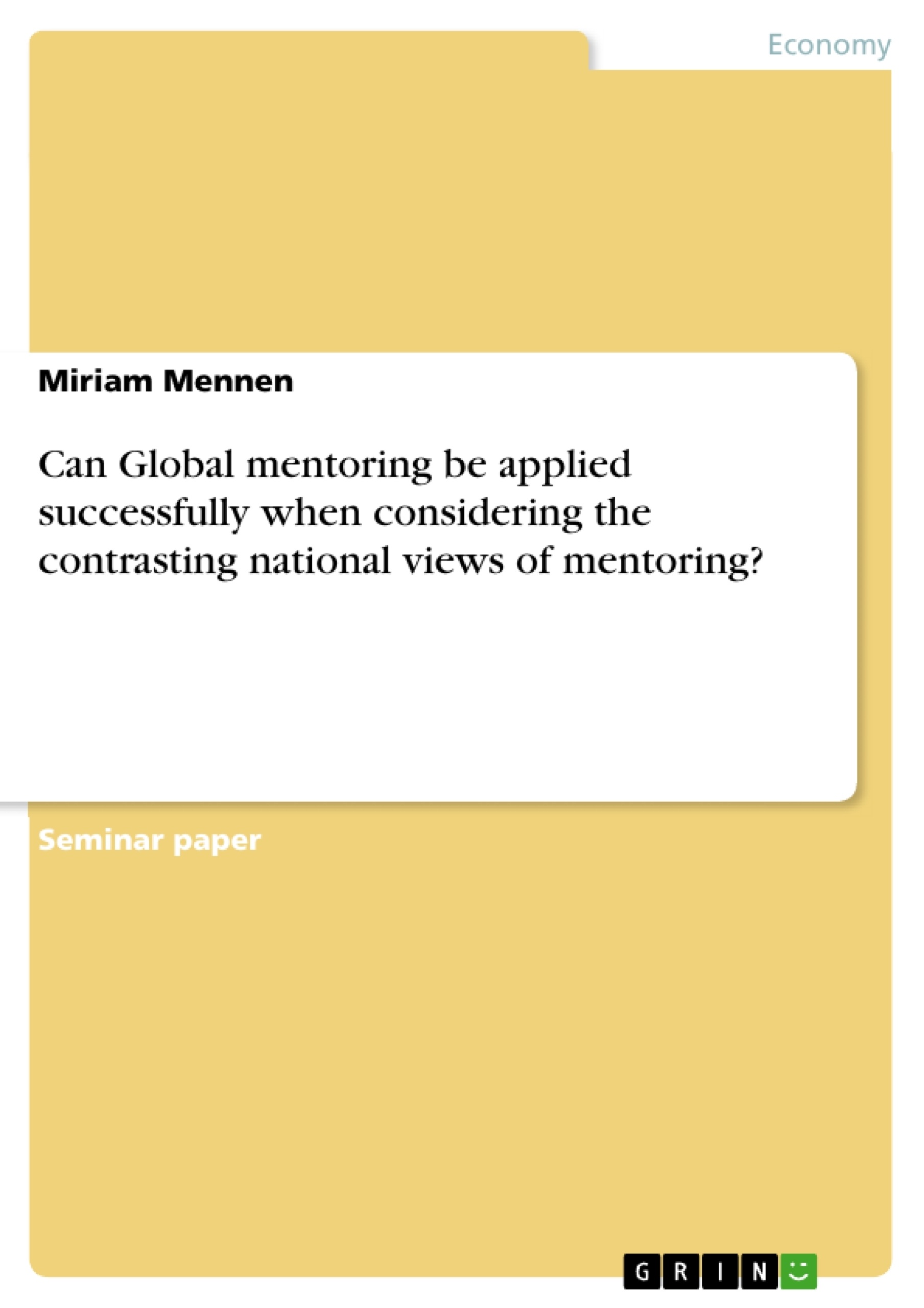Purpose – The aim of this study is to investigate the role of mentoring in a global context. It points out different views of mentoring and its difficulties when applying a global mentoring programme.
Design/ Methodology/ Approach- Data from secondary mentoring literature, like books and management journals, was collected and analysed whereas primarily qualitative was used. This comparative approach looks at mentoring from different national (Western and Japanese mentoring) and a global perspective.
Literature Review – A general overview about mentoring will be given, including its benefits to the company, the mentor and the individual. Furthermore, formal and informal mentoring will be outlined.
Findings - Results indicate that affective mentoring is most likely related to a relationship bond between a mentor and a mentee but cannot be completely informal. The Japanese mentoring style supports mentoring as a relationship whereas the Western society favours a strategic approach. Depending on cultural characteristics, a mentoring approach should be conformed in an appropriate way in order to achieve effective and successful organisational results.
Inhaltsverzeichnis (Table of Contents)
- Introduction
- Literature Review
- Benefits for the company
- Benefits for the Individual
- Benefits to the mentor
- Formal vs. Informal Mentoring
Zielsetzung und Themenschwerpunkte (Objectives and Key Themes)
This study investigates the role of mentoring in a global context, examining different national perspectives and the challenges of applying a global mentoring program. The research uses secondary literature to analyze mentoring styles, primarily focusing on Western and Japanese approaches.
- The impact of cultural differences on mentoring practices
- The benefits of mentoring programs for companies, mentors, and mentees
- Formal and informal mentoring styles
- The role of mentoring in global management training
- The effectiveness of global mentoring programs in different national contexts
Zusammenfassung der Kapitel (Chapter Summaries)
The introduction sets the stage for the study by highlighting the increasing globalization of business and the importance of global management training. It emphasizes the potential of mentoring programs to develop and connect employees, creating a competitive advantage. The chapter defines mentoring and global mentoring, emphasizing the challenges of applying a single global program due to diverse national perspectives.
The literature review examines the benefits of mentoring programs for various stakeholders, including the company, the individual, and the mentor. It provides a detailed overview of formal and informal mentoring practices, highlighting the structure and dynamics involved in each.
Schlüsselwörter (Keywords)
This study explores the critical elements of global mentoring, including cultural differences, formal and informal practices, and the impact on organizational success. It analyzes the benefits and challenges of applying a global mentoring program, highlighting the importance of understanding national perspectives.
Frequently Asked Questions
What are the benefits of mentoring for a company?
Mentoring helps develop talent, increases employee retention, and facilitates knowledge transfer within the organization.
How does Japanese mentoring differ from Western mentoring?
Japanese mentoring often emphasizes a long-term relationship bond, while Western mentoring tends to be more strategic and goal-oriented.
What is the difference between formal and informal mentoring?
Formal mentoring is organized by the company with specific matches and goals, whereas informal mentoring develops naturally through mutual interest and chemistry.
Can a global mentoring program be applied successfully in all cultures?
It is challenging because cultural characteristics significantly influence how mentoring is perceived and practiced, requiring adaptation for each context.
Why is global management training increasingly important?
Globalization requires managers to understand diverse cultural perspectives and lead effectively across international borders.
- Citar trabajo
- Miriam Mennen (Autor), 2006, Can Global mentoring be applied successfully when considering the contrasting national views of mentoring?, Múnich, GRIN Verlag, https://www.grin.com/document/145497



